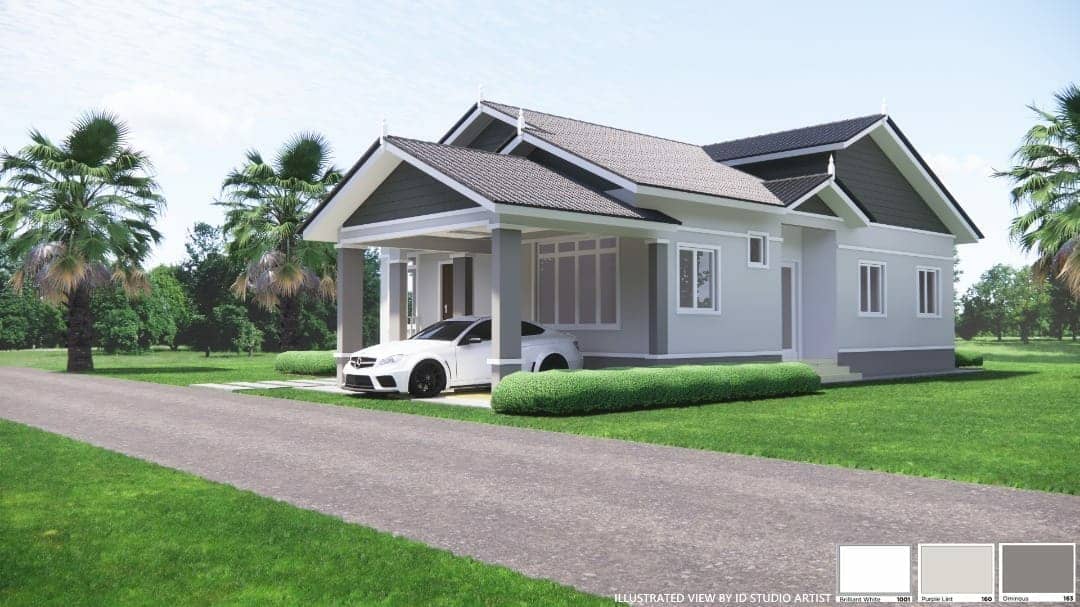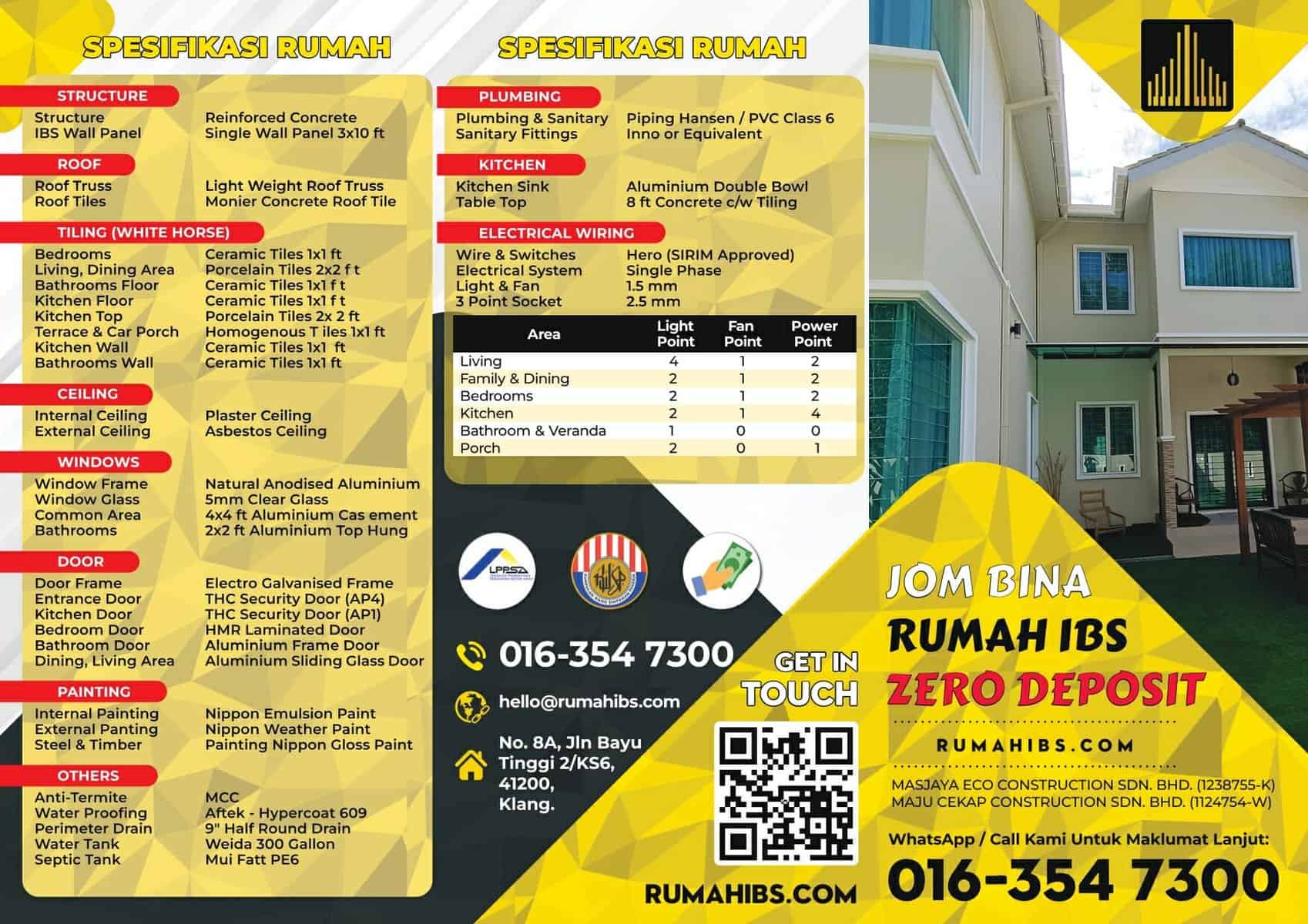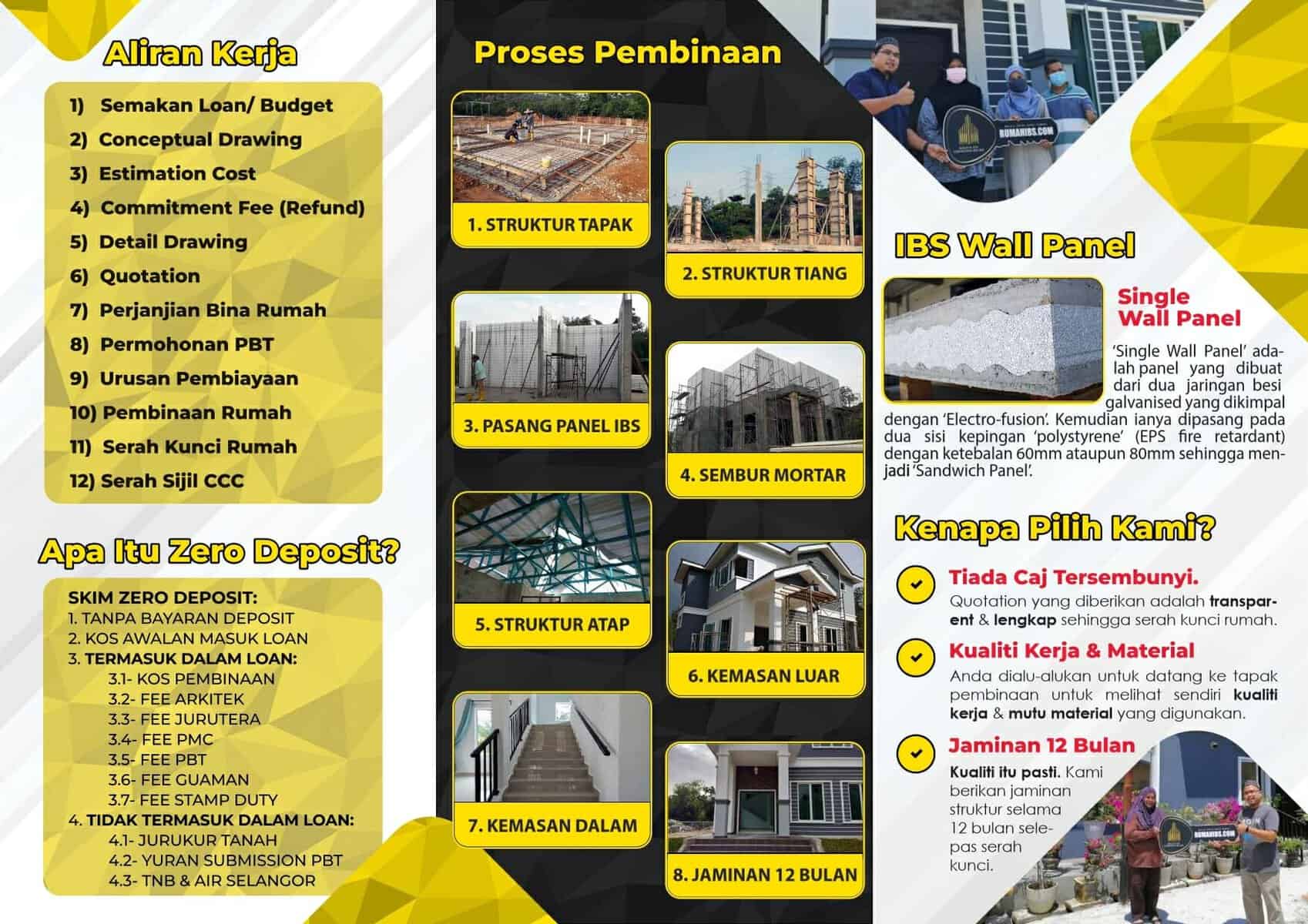- Bina Rumah Batu-Bata
- Zero Deposit
- Spesifikasi Rumah
- Lokasi Projek
- Pembiayaan LPPSA
- Garis Panduan LPPSA (Rasmi)
- Soalan Lazim LPPSA
- E-Book LPPSA (Download)
- 1. Apa itu LPPSA?
- 2. Kelebihan LPPSA
- 3. Syarat Kelayakan
- 4. Jenis-Jenis Pembiayaan
- Jenis 1 – Pembelian Rumah Kediaman Yang Telah Siap
- Jenis 2 – Membina Rumah Di Atas Tanah Sendiri
- Jenis 3 – Membeli Rumah Kediaman Yang Sedang Dibina
- Jenis 4 – Pembelian Tanah Bagi Pembinaan Rumah
- Jenis 5 – Melunaskan Keseluruhan/ Sebahagian Pinjaman Sedia Ada Daripada Bank/ Institusi Kewangan
- Jenis 6 – Pembinaan Rumah Kediaman Di Atas Tanah Yang Sedang Dibiayai Oleh BPP/ LPPSA
- Jenis 7 – Ubah Suai Rumah Yang Sedang Atau Telah Selesai Bayar Melalui LPPSA
- 5. Semak Kelayakan LPPSA
- 6. Dokumen Yang Diperlukan
- 7. Insurans/ Takaful LPPSA
- 8. Kos Yuran Guaman
- 9. BONUS: Bina Rumah
- Pembiayaan Koperasi
- Pengeluaran KWSP
- Bayaran Tunai
- Kalkulator
The Benefits of Prefabricated Buildings in IBS Construction


The Benefits of Prefabricated Buildings in IBS Construction
Introduction
In recent years, the construction industry has witnessed remarkable advancements in technology and methodologies. One such innovation that has gained significant attention is the use of prefabricated buildings in Industrialized Building System (IBS) construction. Prefabricated buildings, also known as modular buildings, are structures that are manufactured off-site and then transported to the construction site for assembly. This article explores the various benefits of prefabricated buildings in IBS construction and how they have transformed the construction landscape.
Efficiency and Speed: Constructing Faster and Smarter
One of the key advantages of prefabricated buildings in IBS construction is the remarkable efficiency and speed they offer. Unlike traditional construction methods that involve extensive on-site work, prefabricated buildings are designed and manufactured in a controlled environment. This allows for greater efficiency as multiple components can be produced simultaneously, reducing construction time significantly. The standardized nature of prefabricated building elements ensures precision and eliminates the need for on-site adjustments, streamlining the overall construction process.
Cost Savings: A Wise Investment
Prefabricated buildings have proven to be cost-effective alternatives to conventional construction methods. The off-site manufacturing process enables better resource management and reduces material waste. As a result, prefabricated buildings offer substantial cost savings in terms of reduced material procurement and disposal expenses. Furthermore, the faster construction time associated with prefabricated buildings translates into lower labor costs and minimized on-site supervision requirements. The controlled manufacturing environment also allows for accurate budgeting and cost predictability, minimizing the risk of unexpected expenses.
Quality Control: Ensuring Excellence
Maintaining high-quality standards is crucial in any construction project. Prefabricated buildings undergo rigorous quality checks throughout the manufacturing process, ensuring that all components meet the required standards. The controlled environment allows for meticulous inspection and adherence to strict quality control measures, resulting in prefabricated buildings that often exhibit superior quality and workmanship compared to traditional construction. This ensures a higher level of customer satisfaction and long-term durability.
Sustainability: Building a Greener Future
In today’s environmentally conscious world, sustainable construction practices have become a top priority. Prefabricated buildings contribute significantly to sustainability efforts. The off-site manufacturing process reduces material waste by optimizing resource utilization. Additionally, the ability to recycle and reuse prefabricated components minimizes the environmental impact. Prefabricated buildings can also be designed to integrate sustainable technologies, such as solar panels and energy-efficient insulation systems, further enhancing their environmental performance. Choosing prefabricated buildings promotes a greener future by reducing the carbon footprint associated with construction.
Flexibility and Customization: Tailoring to Specific Needs
Prefabricated buildings offer a high degree of flexibility and customization options. The modular nature of these structures allows for easy expansion, modification, or relocation in the future. Developers and architects can collaborate to design prefabricated buildings that meet specific requirements, ensuring optimal space utilization and functionality. Whether it’s a residential home or a commercial complex, prefabricated buildings can be tailored to suit various architectural styles and design preferences.
Reduced Disruption and Noise: Minimizing Inconvenience
Traditional construction methods often cause significant disruption and noise pollution in surrounding areas. Prefabricated buildings mitigate these issues as a significant portion of the construction work is done off-site. The assembly process is typically faster and quieter, resulting in reduced disturbance to the surrounding environment and nearby residents or businesses. This makes prefabricated buildings an ideal choice for urban areas, where minimizing disruption is essential.
Safety: Prioritizing Well-being
Safety is paramount in any construction project. Prefabricated buildings prioritize safety through meticulous design, engineering, and manufacturing processes. The controlled environment ensures adherence to safety standards and reduces the risk of accidents during construction. Additionally, the modular construction approach allows for safer on-site assembly, with fewer activities conducted at height or in hazardous conditions. Choosing prefabricated buildings not only saves time and money but also ensures the well-being of workers and occupants.
Durability: Built to Last
Prefabricated buildings are renowned for their durability. The use of high-quality materials, precise manufacturing techniques, and rigorous quality control measures contribute to the longevity of these structures. Prefabricated components are designed to withstand various environmental conditions, such as extreme weather events and seismic activity. In many cases, prefabricated buildings exhibit superior structural integrity and resilience compared to traditional construction. This durability ensures a long lifespan for the building and reduces the need for frequent maintenance or repairs.
Conclusion
Prefabricated buildings have revolutionized the construction industry, especially in the context of IBS construction. The numerous benefits they offer, including efficiency, cost savings, quality control, sustainability, flexibility, reduced disruption, safety, and durability, make them an attractive choice for developers and contractors alike. Embracing prefabricated buildings in construction projects can lead to faster completion times, reduced costs, improved sustainability, and enhanced overall project outcomes. As the demand for efficient and sustainable construction practices continues to grow, prefabricated buildings are set to play a significant role in shaping the future of the industry.
FAQs
1. Are prefabricated buildings of inferior quality compared to traditional construction? No, prefabricated buildings undergo stringent quality control measures during manufacturing and often exhibit superior quality compared to traditional construction. The controlled environment ensures precision and adherence to strict standards.
2. Can prefabricated buildings be customized to suit specific design requirements? Yes, prefabricated buildings offer a high degree of flexibility and can be customized to meet specific design and functional requirements. Architects and developers collaborate to create tailored solutions that align with the project’s unique needs.
3. Are prefabricated buildings more expensive than traditional construction methods? No, prefabricated buildings can result in cost savings due to reduced construction time, better resource management, and accurate budgeting. The controlled manufacturing process allows for efficient use of materials and labor, translating into lower overall costs.
4. Are prefabricated buildings environmentally friendly? Yes, prefabricated buildings contribute to sustainability efforts through reduced material waste, recycling of components, and the integration of energy-efficient technologies. The off-site manufacturing process minimizes the environmental impact associated with traditional construction.
5. Can prefabricated buildings be disassembled and relocated? Yes, the modular nature of prefabricated buildings allows for easy disassembly and relocation. This flexibility is particularly advantageous when future expansion or relocation is desired. Prefabricated buildings offer adaptability and can be modified to suit changing needs.





